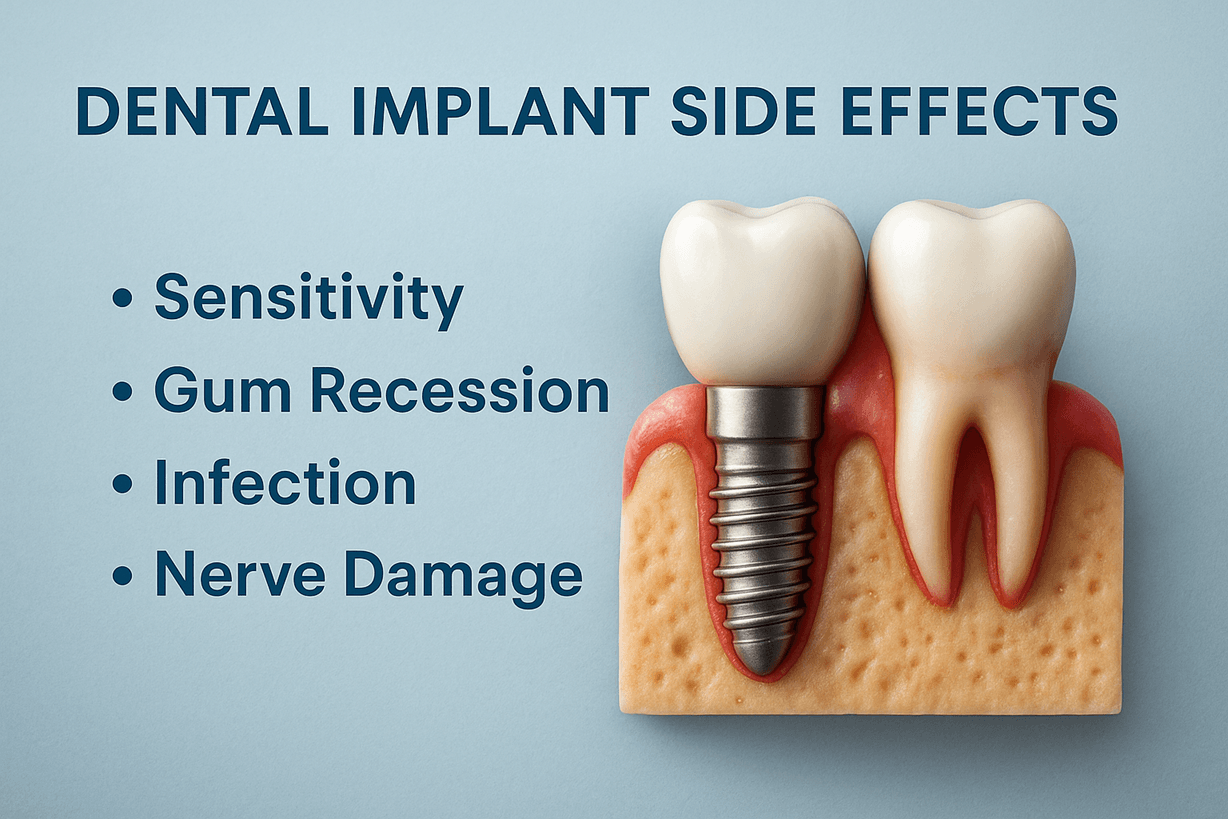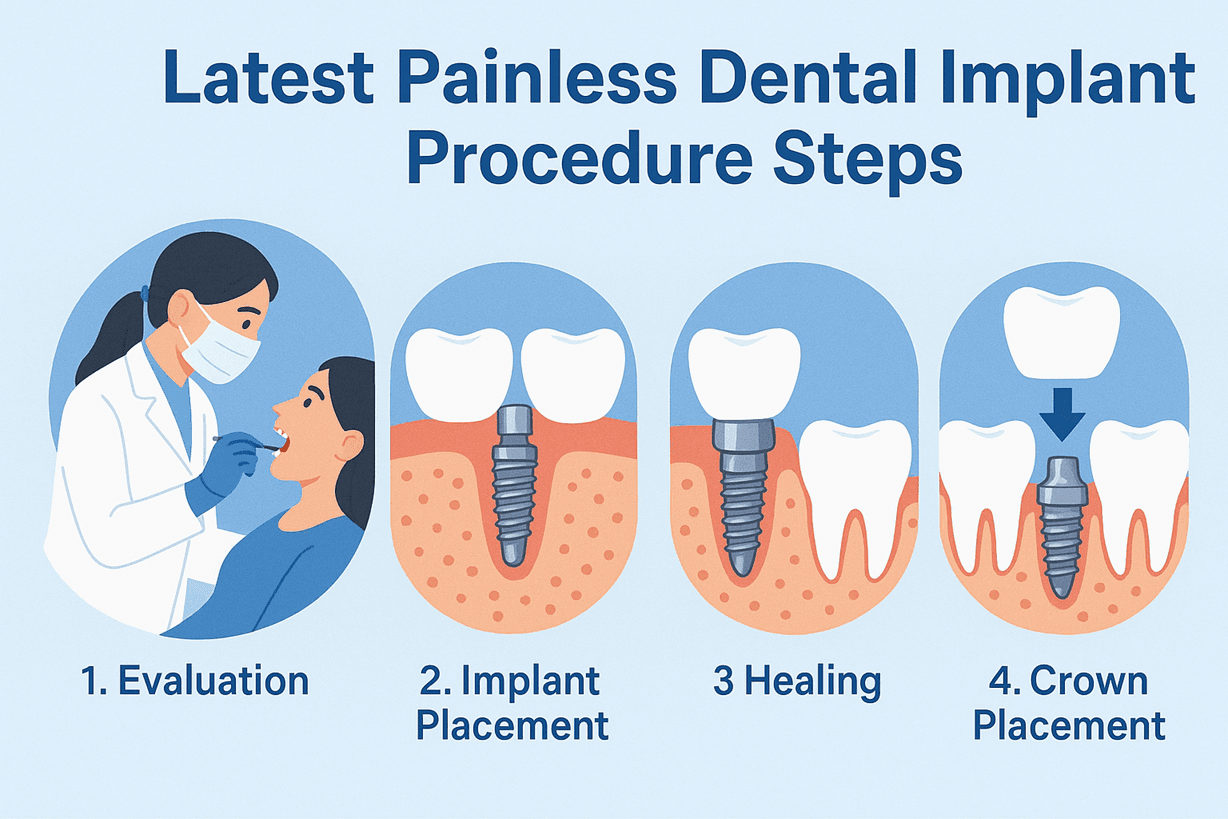Contents
- What Are Wisdom Teeth?
- Here are 10 Wisdom Teeth Myths You Need to stop Believing Now!
- Myth #1: All Wisdom Teeth Need to be Removed:
- Myth #2: It's Always Painful to Have Your Wisdom Teeth Removed
- Myth #3: You Must Have Surgery to Remove Your Wisdom Teeth
- Myth #4: Removing Your Wisdom Teeth Will Help Prevent Crowding in the Mouth
- Myth #5: Eating Soft Foods After Getting Wisdom Teeth Extracted is Recommended Indefinitely
- Myth #6: Having Impacted or Partially Erupted Wisdom Teeth Is Normal and Not a Problem
- Myth #7: You Should Wait Until You're Older To Remove Your Wisdom Teeth
- Myth #8: Extracting Your Third Molars Has No Effect on Other Parts of the Body
- Myth#9: Keeping All Four of Your Third Molars Is Best for Oral Health
- Myth#10: There's No Need to Replace Missing Wisdom Teeth with Implants
- Conclusion
- Frequently Asked Questions
Are you struggling with the pain and discomfort of your wisdom teeth? Many people go through this experience, but it doesn’t have to be a source of stress.

In this blog post, we’ll cover everything you need to know about wisdom teeth, from common myths to when and why you should consider having them removed.
Read on for all the information and advice you need to make an informed decision that is best for your oral health!
What Are Wisdom Teeth?
Wisdom teeth, also known as third molars, are the last permanent teeth to appear. They usually develop in late adolescence or early adulthood and may cause problems if they don’t grow properly.
Understanding the potential risks associated with wisdom teeth is important. Having them removed can benefit your oral health if they don’t fit properly or become impacted, meaning they can't break through the gum line. Impacted wisdom teeth can lead to pain, discomfort, infection, and damage to adjacent teeth.
If your wisdom teeth erupt normally and fit properly into your bite, there's no need to remove them. However, if they don't fit or become impacted, extraction may be necessary.
Your dentist can provide more information on managing wisdom teeth problems. They might take X-rays to assess the situation and determine if surgical removal or monitoring is needed. Taking care of your wisdom teeth now can prevent issues later.
Here are 10 Wisdom Teeth Myths You Need to Stop Believing Now!
Myth #1: All Wisdom Teeth Need to be Removed:
Many people believe all wisdom teeth must be removed, but that's not always true. Some can keep their wisdom teeth without any issues.
The decision to remove them should be based on a thorough exam and discussion with your dentist or oral surgeon. Regular check-ups and cleanings may be all you need if your wisdom teeth are healthy.
However, if complications like infection or overcrowding occur, removal might be necessary. Remember, extraction doesn't always guarantee pain relief and can sometimes cause more problems if done improperly.
Always discuss all possible outcomes with your dentist to make an informed decision that's best for you.
Myth #2: It's Always Painful to Have Your Wisdom Teeth Removed
Many believe wisdom teeth removal is always painful, but this isn't necessarily true. Discomfort varies depending on the complexity of the extraction.
Your dentist or oral surgeon will provide medication and local anaesthesia to minimize pain during the procedure. Afterwards, they may recommend over-the-counter pain relief like ibuprofen or acetaminophen.
With proper care and attention from a qualified professional, you can expect a relatively smooth recovery with minimal discomfort.
Myth #3: You Must Have Surgery to Remove Your Wisdom Teeth
Wisdom teeth removal is common but not always necessary. Some people don't have issues with their wisdom teeth, so regular dental visits are essential to monitor their position.
Removal is usually recommended if wisdom teeth cause dental problems like crowding, cavities, or gum disease. Impacted wisdom teeth may also need surgical intervention. Tooth extraction can provide more room for other dental procedures like braces.
If surgery is necessary, find a qualified professional and ensure all safety protocols are followed. The procedure is typically done under local anaesthesia, so you won't feel pain. Proper aftercare, including following your doctor's instructions and attending follow-up visits, is crucial for recovery.
Myth #4: Removing Your Wisdom Teeth Will Help Prevent Crowding in the Mouth
Removing wisdom teeth doesn't always prevent crowding. Studies show no consistent link between wisdom tooth removal and preventing overcrowding.
Crowded teeth can result from genetics, poor oral hygiene, or jaw size discrepancies. A wisdom tooth extraction should be considered if it causes inflammation or infection. Sometimes, an orthodontist might recommend removal to prevent future issues.
Each case is unique, so consult your dentist or orthodontist for personalized advice.
Myth #5: Eating Soft Foods After Getting Wisdom Teeth Extracted is Recommended Indefinitely
After wisdom teeth extraction, eating soft foods is recommended for recovery. Soft foods prevent pressure on the extraction site and avoid further injury. They are also easier to chew, reducing discomfort.
You don't need to eat soft foods indefinitely. As you heal, you can gradually transition to harder foods. Nutrient-rich soft foods like applesauce and mashed potatoes are also beneficial.
Consult your dentist before changing your diet post-surgery. They can advise on suitable foods and ensure proper healing. With their guidance, you'll return to a balanced diet soon.
Myth #6: Having Impacted or Partially Erupted Wisdom Teeth Is Normal and Not a Problem
It's a misconception that impacted or partially erupted wisdom teeth are harmless. These teeth can cause overcrowding, misalignment, jaw pain, and trap bacteria leading to infection and gum disease.
Impacted wisdom teeth should be examined by a dentist promptly. Treatment may include extraction or orthodontic procedures. If left untreated, the condition can worsen, causing extreme pain and damage to surrounding teeth.
Seeing your dentist immediately is crucial for evaluating and addressing the issue to protect your oral health.
Myth #7: You Should Wait Until You're Older To Remove Your Wisdom Teeth
Many believe wisdom teeth should only be removed when older, but this isn't true. While wisdom teeth usually erupt in the late teens or early twenties, waiting to remove them can increase the risk of complications like impaction, pain, damage, gum disease, or infection.
Discuss with your dentist whether earlier removal is beneficial for you. Early removal often means shorter recovery times, as younger patients tend to heal faster. Consulting your dentist ensures optimal oral health now and in the future.
Myth #8: Extracting Your Third Molars Has No Effect on Other Parts of the Body
Extracting wisdom teeth is common, but it can impact overall health. Removal can weaken the jawbone, misalign other teeth, decrease bone density, and increase the risk of periodontal disease. Improper surgery or infection can cause nerve damage.
Extraction may also lead to facial asymmetry and changes in lip shape. Complications like dry sockets and sinus perforations are more likely. It's essential to weigh the potential risks and consult your dentist before proceeding to ensure long-term oral health.
Myth#9: Keeping All Four of Your Third Molars Is Best for Oral Health
Having wisdom teeth isn't always best for oral health. They can cause overcrowding, infection, and gum disease. If not removed, these issues can worsen and require extensive dental work.
Consult a dentist or orthodontist to evaluate your situation. If there's enough room for wisdom teeth to grow without causing problems, keeping them may be safe. Otherwise, removal might be recommended.
Sometimes, dentists suggest waiting until symptoms appear before removing wisdom teeth to avoid complications. Always discuss options with a qualified dental professional to determine the best plan for your oral health.
Myth#10: There's No Need to Replace Missing Wisdom Teeth with Implants
Contrary to popular belief, missing wisdom teeth don't always need to be replaced. Sometimes, extra space can be beneficial, or the jawbone may not be suitable for implants. Your dentist will recommend the best action based on your case.
While keeping natural teeth is usually best, an implant might be beneficial if adjacent teeth are lost. It can help maintain alignment and prevent further issues. Discuss with your dentist whether an implant is right for you, considering your age and oral health.
Understanding the risks and options for wisdom teeth is crucial. Consult a dental professional to make the best decision for your smile.
Conclusion
Wisdom teeth have become the stuff of legend. You may have heard myths that your wisdom teeth will cause overcrowding and force other teeth out of place, or even that they are unnecessary and should be removed preemptively.
The truth is far from these rumours; wisdom teeth can be perfectly healthy and serve a purpose in your mouth. There’s no reason to believe any of the myths about them!
The most common myth about wisdom teeth is that they need to be removed if they cause overcrowding or push other teeth out of alignment. This simply isn’t true; many times, the roots of these molars aren’t fully developed, so they don’t cause any problems at all.
When this happens, you won’t need to worry about having them extracted. It’s also important that wisdom teeth serve no purpose in your mouth.
They help you chew tougher foods like steak or corn on the cob more easily, and their presence can help improve overall jaw function as well as prevent wear-and-tear on other molars due to overuse.
So while it may be necessary for some people to get their wisdom teeth removed due to potential problems like infection or impacted growth, for many others keeping them could benefit their oral health more than getting rid of them would!
Frequently Asked Questions
Is getting wisdom teeth lucky?
The answer is yes and no!
On one hand, wisdom teeth can be a sign of luck since they signal that you have reached a certain age mark and it can feel like an accomplishment.
It’s also thought that wisdom teeth bring good fortune because of the ancient belief that having all 32 teeth was a sign of health, strength, and vitality – something to be admired and celebrated.
On the other hand, many people experience pain when their wisdom teeth come in or cause overcrowding in their mouths which means they need to get them removed.
This process can often be uncomfortable, expensive, and time-consuming so it’s not always seen as lucky from this perspective.
Ultimately, getting your wisdom teeth is neither lucky nor unlucky but rather just part of life for most people. Whether you decide to keep them or remove them is up to you but either way, there are pros and cons involved so make sure you do your research before making any decisions!
Does wisdom teeth mean anything?
Yes, wisdom teeth do mean something! Wisdom teeth are the last set of molars to grow in an adult’s mouth. They usually come in during the teen years or early twenties and are located at the very back of your mouth. Most people have four, although it is not uncommon to have fewer or even none.
Do wisdom teeth mean you're smart?
No, wisdom teeth do not mean you're smart. Wisdom teeth are the four very back molars that usually don't appear until the late teens or early twenties.
They are often referred to as the third set of molars because they come in after all other adult teeth have erupted. Some people may never even develop wisdom teeth, but most will experience some form of discomfort when these third molars start to grow due to a lack of space in the jaw for them.
Your intelligence is not determined by your oral health, so having or not having wisdom teeth does not make you smarter or less intelligent.
The development of wisdom teeth itself is an evolutionary trait that has been around since prehistoric times and was thought to be needed for a food source such as roots and nuts as our diets changed over time.
In general, it's best to get any impacted or painful wisdom teeth removed regardless of how intelligent you believe yourself to be – this can help prevent potential infection and further dental problems down the line.
That being said, if your wisdom teeth aren’t causing any pain or discomfort then there may not be a need for extraction either - it’s ultimately up to you and your dentist to decide what course of action is best for your particular situation.
Is wisdom tooth related to the brain?
Yes, Recent research suggests there could be a connection between these two parts of the body.
Studies have shown that wisdom teeth serve as a kind of “backup” for other teeth when they start to wear down from age or use. This means that if one tooth starts to fail, the wisdom tooth can take its place and help maintain proper alignment in your mouth.
It is believed that this mechanism helps protect us from developing certain neurological diseases such as dementia and Parkinson’s disease, though further research is needed to confirm this association.
Another interesting theory is that wisdom teeth might act as a kind of evolutionary “buffer” for our brains by providing an extra source of energy needed during mental development and growth spurts in adolescence.
In addition, some researchers suggest that these molars may also act like anchors by helping stabilize our jaws while we chew food—which could ultimately reduce stress on our brains while we eat!
While there is still much more to learn about how wisdom teeth affect both our physical and mental well-being, it certainly seems like these small but mighty molars have some big roles to play!
Does having wisdom teeth change your face?
Having wisdom teeth erupt can certainly have an effect on the appearance of your face. Generally, having wisdom teeth removed may result in slight changes to the shape of your mouth and jawline. In some cases, these changes are subtle and barely noticeable, while in others they may be more pronounced.
The presence of wisdom teeth can cause crowding of the other teeth due to a lack of space in the mouth. This is especially true if there isn't enough room for them to erupt properly or fully; this is known as impaction.
When impacted, wisdom teeth can push against other nearby teeth and move them out of alignment or tilt them inward or outward; this shift in position might slightly change the appearance of your facial structure over time.
In addition, when impacted wisdom teeth are removed surgically, it could leave behind a small indentation near the back molars that could affect how your cheek looks when you smile.
Nevertheless, these effects will usually not be significant enough to alter one’s facial features drastically; any noticeable changes should only be temporary and generally improve with time after surgery has been completed.



